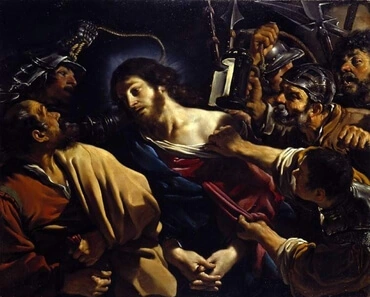Explanation of John 1:10
By Brian David

The beginning of John 1 illustrated how divine truth – which is the ultimate expression of the Lord’s love – is the actual creative force of the universe and of reality itself. That idea is reinforced here: "him" refers to Jesus, who was the physical embodiment of divine truth, which indeed made the world.
This verse offers another level, though. "World" represents the church, which is defined in the Writings as "where the Lord is known and where the Word is." By that definition a "church" can be as small as one person, or as large as billions of people worshiping through a wide variety of denominations. And the Writings tell us that the Lord has made sure that such a church always existed, from prehistoric times when the Lord offered "the Word" – His truth – to people directly up through today, when we have the Word in the form of the Bible.
But the world did not know him. At the time the Lord came among us as Jesus, people had turned away from the deeper meanings of the Word (which they then had in the form of the Old Testament), and had little to no concern for knowing the Lord. His church – the church among the Children of Israel – had turned away.
This might seem like a merely historic idea, something that happened then but has little to do with us now. But each one of us is a "church," and each one of us can know the Lord and the Word, or turn away. We all go through states when we are like the church at the time the Lord was born, and He can rebuild us now even as He rebuilt the church then. For that to happen, though, we need to turn to the Word – the Bible – and know the Lord.
(References: Apocalypse Explained 1093; Canons of the New Church 9; The Apocalypse Explained 294 [16])
Arcana Coelestia #8609
8609. 'And they took a stone' means the lowest level of God's truth. This is clear from the meaning of 'a stone' as truth, 643, 1298, 3720, 3769, 3771, 3789, 3798, 6426, in this instance the lowest level of truth since it was put underneath him and he sat on it. An ordinary stone furthermore means a lower level of truth, while a precious stone means a higher or more internal level of truth. What the lowest level of truth is becomes clear from what has been stated above in 8603 about the levels of truth that follow one another in order; that is to say, there are interior truths and exterior truths, the lowest of which are meant by the lowest level of truth.






